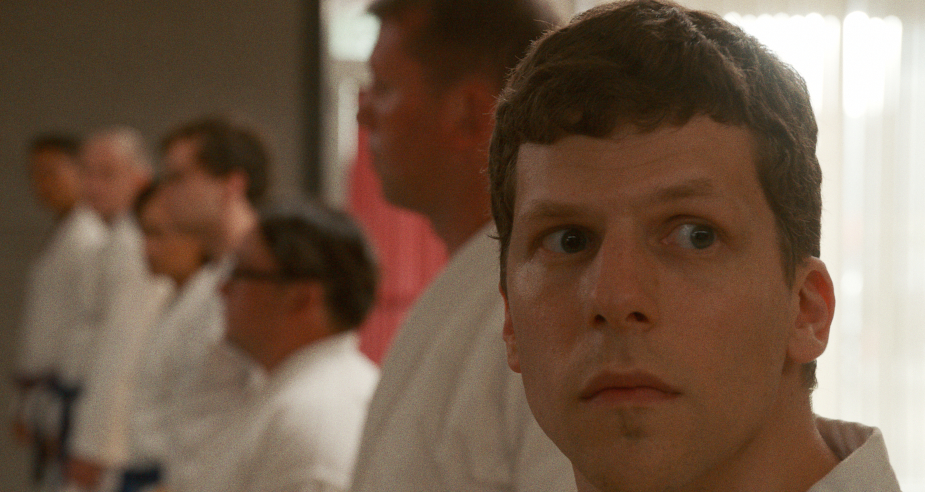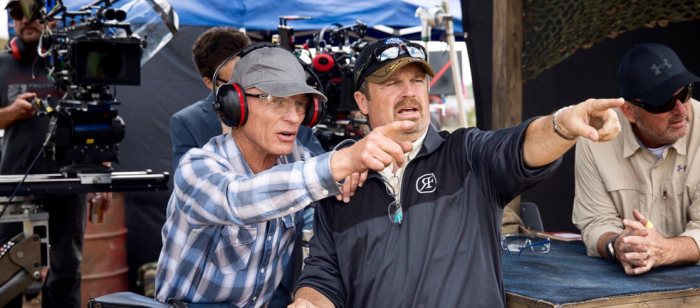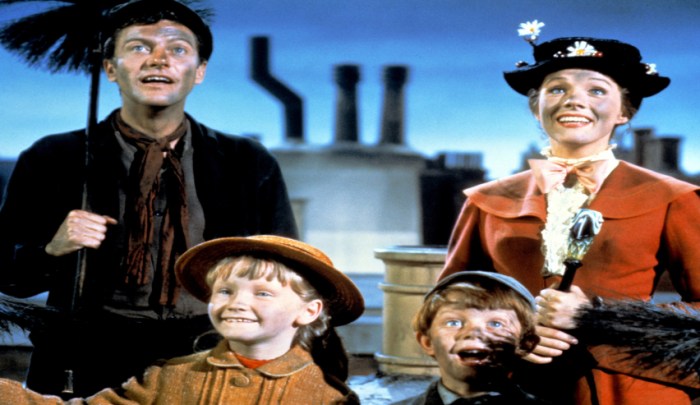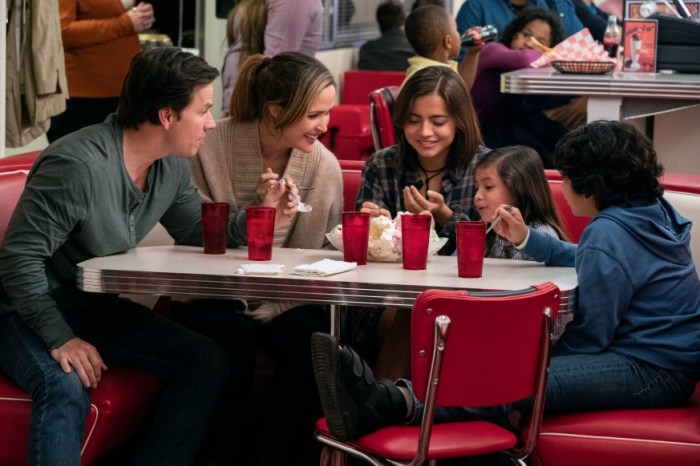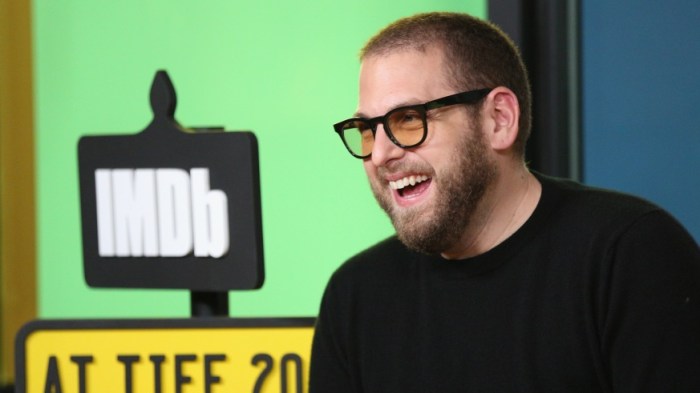There are few movies in today’s day and age that completely pull the wool over your eyes up until the very last scene — and Riley Stearn’s second feature film, “The Art of Self-Defense,” is one of them. The film stars Jesse Eisenberg and tells the story of Casey Davies, a frail, innocent and completely defenseless 36-year-old man who is brutally mugged in a vicious attack that almost kills him. The attack leads Casey to join a karate dojo, where he meets a slew of polarizing characters including the deceitfully bellicose Sensei (Alessandro Nivola).
Jesse Eisenberg talks the unpredictable nature and extreme essence of ‘The Art of Self Defense’
The interesting themes that continually run throughout the feature highlight the extremes of human behavior and shine a light on how society’s expectations can lead people to do very dangerous, and almost uncharacteristic things. “When I first read the script, I thought, I don’t want to do this kind of thing, I know what it is,” says Eisenberg. “By Page 15, I realized the movie is completely different from what I originally expected. It’s actually a brilliant satire on the absurdities of masculinity and the length men go to in the attempt to be strong.”
Although the film does highlight the pressure one can feel from a misogynistic environment, that’s not what the point is.
“It all comes from a sincere world perspective. Riley felt a genuine concern with his place in society as a male. That kind of earnestness comes through in the humor and the violence,” says Eisenberg. “Riley practices jiu-jitsu every day, so this was not written by someone who thinks karate is silly or something that can be mocked. Same with violence. He thinks violence has some utility, but he just didn’t know what that utility was. It’s not a movie that mocks karate or mocks men. It mostly questions misogyny and masculinity, but it’s questioning it from a place of concern rather than from a place of mockery. I think that’s why it all works, because it feels sincere and didactic and doesn’t feel condescending.”

Just like in the fighting world, the film starts off with a warm-up of events, throws a few punches and then absolutely knocks you out with startling twists, turns and surprises. Plus, there are actual knockouts in the dojo as well. “I did about three intense weeks of training for the movie. I was lucky, I was only a Yellow Belt so I didn’t have to be as intense as some of the other characters,” says Eisenberg. “I thought of everything to the extreme. Casey is timid to an extreme, and then when he becomes strengthened, he is aggressive to an extreme.”
The extreme nature of the film works well with the setting that Stearns wanted to create, which is not supposed to be known to the audience. Think of it as a parallel universe where power is limited even when ego is not, and the characters are free to interpret and blur the lines of moral ambiguity. “There is a certain bluntness and formality to the way the characters behave. It’s aided by the fact that we can’t place it in a specific time or location,” says Eisenberg. “The characters feel like they are part of the same universe. Even the powerful and scary people in the movie are not horrifying movie characters. The antagonist in this movie is actually just a small-business owner who runs a karate studio. He’s not trying to take over the world. All of the ambitions of these characters feel small even if they’re malevolent or dangerous. It’s an aesthetic that allows for the kind of commentary on masculinity to be highlighted without it feeling like it’s a specific commentary on men today or on political situations.”
Eisenberg’s Casey is the driving force behind the movie’s theme. “Casey is the perfect member for this group. He’s desperate to belong somewhere, he’s desperate for guidance, he’s desperate for authority.”

The ending, just like the film, is not what you would expect. Also just like the film, it is a comical hit on the ironic stipulations that are put on individuals. It serves its purpose of not trying to hammer a message down anyone’s throats but still showcases the film’s impressive ability to continually surprise.
“Casey is kind of a hollowed-out creature who doesn’t seem to have his own core convictions until the movie finds its revolution. The surprise for the audience is that Casey has concocted a plan, even after you’ve been watching him for an hour and a half as this kind of cipher of a person who doesn’t have his own set of opinions,” says Eisenberg. “So you realize he has grown, but it’s just done in such a shocking way that it’s in line with the rest of the movie which is unpredictable, odd and unnerving.”
“The Art of Self-Defense” is satirical, dark and quite literally shocking. “The movie is not fully one thing,” says Eisenberg. “It’s complicated.”
“The Art of Self-Defense” opens in theaters Friday, July 12

